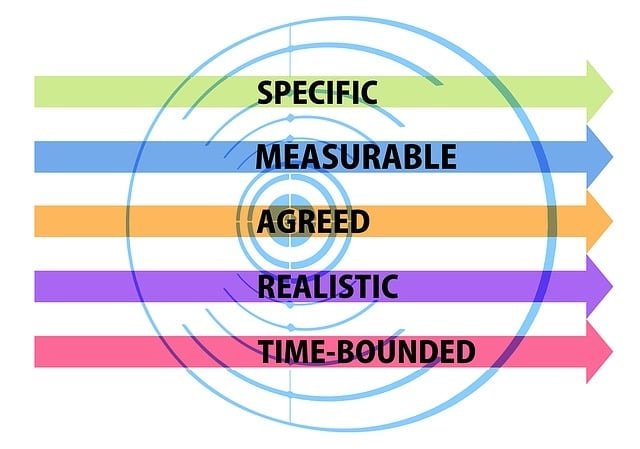A project management course provides the skills needed to guide projects from start to finish, aligning tasks with an organization’s strategic plans. Students learn how to identify project goals, manage resources, and oversee complex projects through practical instruction, theoretical frameworks, and real-life case studies. This training equips prospective project managers with the knowledge to navigate multiple sectors, fostering the agility and decision support necessary for project success.
Understanding Project Management

Project management involves applying organizational tools and practices to ensure tasks are completed on time, on budget, and within scope. Project managers coordinate with stakeholders, define milestones, and implement risk management measures.
Whether delivering technical solutions, rolling out new services, or planning capital investments, the primary objective is to achieve project success by meeting (or exceeding) performance criteria. Skilled project managers handle multiple tasks while adapting to evolving project goals.
The Role of the Project Manager

A project manager controls day-to-day operations, shapes project plans, and oversees lifecycle phases. This professional works to align the project’s progress with the broader organization’s strategic plans.
Effective managers communicate with project stakeholders, monitor budget and resource requirements, and apply project management skills to handle issues swiftly. They must also maintain quality management processes and manage any control needs.
Project Management Success Factors
Strong leadership, clarity of purpose, and robust communication channels are among the factors that help achieve project success. By identifying risks early and managing projects through standardized processes, teams can operate more smoothly and adapt to new developments.
Project management training highlights how best to structure the decision-making process to maximize efficiency and ensure that the final deliverables meet the client’s or organization’s expectations.
The Project Management Body of Knowledge

In formal education, the project management body of knowledge is a structured framework for project professionals. Defined by organizations like the Project Management Institute Inc., this body of knowledge outlines the lifecycle phases of a project, from project initiation and planning to execution, monitoring, and closure. By following these phases, managers can consistently apply project management practices, bolstering their capacity to complete projects of various sizes and complexities.
Project Management Institute (PMI)
The Project Management Institute (PMI) sets global standards for project management and offers credentials and guidelines that shape the profession. This organization, often referred to as PMI, provides resources that encourage consistent project management practices.
The institute’s frameworks help individuals across industries—from IT and construction to finance and healthcare—develop advanced competencies and project management skills.
Certifications from PMI
One of the most recognized certifications is the Project Management Professional (PMP), an industry standard for project professionals who have demonstrated their expertise.
Candidates may also opt for the Certified Associate in Project Management (CAPM), an entry-level certification for those looking to enhance their project management knowledge. Regardless of the credentials, PMI programs focus on core competencies required to achieve project success and contribute to an organization’s strategic plans.
Project Management Course Components
A comprehensive project management course typically includes modules on risk management, resource planning, scheduling, and quality management. Depending on the institution, the curriculum might also delve into specialized topics such as information management, complex project coordination, and advanced software requirements. These courses are designed to prepare students for real-world applications and align project outcomes with performance criteria relevant to multiple sectors.
Core Project Management Skills
Project management training helps students build daily coordination and decision-support skills. By mastering resource allocation, communication strategies, and stakeholder engagement, participants learn to handle tasks effectively. Additionally, the ability to create project plans and maintain a transparent project lifecycle ensures that every stage is documented and controlled, minimizing potential disruptions.
Lifecycles and Methodologies
Lifecycle phases are vital in structuring tasks, from initiating a new concept to handing over a finished product. A project management course commonly covers Agile, Waterfall, or Hybrid methodologies. Learners explore how each method affects planning, collaboration, and execution so that they can align their approach with the project’s nature and complexity.
Types of Project Management Credentials
Professional organizations, including the Project Management Institute Inc., offer several types of certifications and credentials tailored to different levels of expertise.
Project Management Professional (PMP)
The Project Management Professional (PMP) credential is a premier certification recognized worldwide. It signifies a project manager’s commitment to excellence, showcasing their understanding of project management practices and ability to handle complex projects. Most PMP candidates have years of experience managing projects and meet certain educational prerequisites before taking the exam.
Certified Associate in Project Management (CAPM)
The Certified Associate in Project Management (CAPM) can be a significant stepping stone for newcomers or those early in their careers. This certification helps individuals validate their project management knowledge without extensive work experience. CAPM holders can apply project management practices learned in their studies or training courses to real-world scenarios.
Associate in Project Management
Another entry-level credential is an associate in project management, suitable for those with limited field experience. This option enhances familiarity with standard terminology, lifecycle phases, and fundamental principles so students can confidently assist more senior project professionals on the road to project success.
Project Management Course Delivery: Online vs. On-Campus
Because of the growing demand for flexible education, many institutions now offer online courses for project management programs. These can be delivered online entirely or in hybrid formats that combine in-person instruction with web-based assignments. Distance learning can be a great fit for current students or working professionals who must balance employment, personal commitments, and academic pursuits.
Online Courses
Online courses provide adaptability, letting students manage coursework from anywhere with a stable internet connection. This can benefit international students who may not be able to relocate but still want access to recognized training from an authorized training partner of the Project Management Institute. While online courses may require self-discipline, they offer diverse perspectives from a global cohort.
In-Person Training
Some learners prefer face-to-face guidance, real-time discussions, and collaborative capstone projects. An in-person environment allows for immediate instructor feedback and close interactions with peers. Traditional classroom settings offer a hands-on learning experience that fosters group work, networking, and direct mentorship—essential for those seeking a more personal approach.
Project Management Program at Central College, Mississauga
Central College, Mississauga, offers a project management program that aligns with current industry needs. This certificate program combines theoretical concepts with experiential learning to prepare students to manage projects in diverse settings. Faculty with real-world expertise offer personalized mentorship, and courses incorporate the body of knowledge taught by recognized project professionals.
This program also aims to support international and domestic students seeking relevant credentials. Whether you’re exploring project management training for the first time or looking to advance your career, Central College, Mississauga, provides the resources, course requirements, and guidance needed for success.
Ontario College Graduate Certificate in Project Management
For those wanting a more advanced credential, an Ontario college graduate certificate offers a structured curriculum focused on project management skills, resource requirements, and practical application. This graduate certificate is designed primarily for individuals who have completed a bachelor’s degree or advanced diploma. Such a qualification can expand career horizons, enabling graduates to apply project management practices in multiple sectors.
Admissions Process and Eligibility Criteria
Prospective students must typically provide proof of their previous studies, such as transcripts from a bachelor’s degree or advanced diploma program. English language proficiency may also be required. Once accepted, students can expect an academically rigorous program that hones key competencies. The admissions process often involves evaluating the applicant’s readiness to handle a heavier course load and meet performance criteria in various experiential learning assignments.
Program Availability and Delivery
Program availability can vary by academic term, with some cohorts starting in the fall or winter. Certain graduate certificate programs may be delivered online, offering flexibility for international students who must balance personal obligations. Others may offer part-time options, letting participants manage external work commitments. In all cases, the emphasis is on preparing students to complete required courses and thrive in real-world project scenarios successfully.
Capstone Projects and Experiential Learning
Many project management programs incorporate capstone projects as a culminating activity. These hands-on experiences simulate real workplace conditions, requiring learners to collaborate on project plans, manage timelines, and engage project stakeholders. Capstone projects challenge participants to synthesize project management knowledge gained throughout their studies, enhancing their confidence and capacity to handle future career tasks.
Practical Application
Experiential learning aims to produce skilled project managers who can apply project management practices across different industries, including IT, construction, manufacturing, healthcare, and more. These applied experiences teach students to identify project goals, align tasks with an organization’s strategic plans, and integrate risk management strategies. Through collaborative efforts and reflective exercises, learners refine their ability to adapt their approach when faced with shifting priorities or unforeseen challenges.
Curriculum and Course Requirements
A robust project management course integrates essential topics:
- Risk Management: Effective strategies for identifying, analyzing, and responding to uncertainties.
- Quality Management: Ensuring outcomes meet or exceed stakeholder expectations.
- Resource Allocation: Managing budgets, personnel, and materials.
- Information Management: Maintaining secure, streamlined data workflows.
- Decision Support: Using quantitative and qualitative methods to guide project directions.
- Software Requirements: Employing project management tools for scheduling, reporting, and analytics.
Additional Details: Courses and Program Co-ordinator
Students can access program information through a program coordinator who helps clarify course requirements. The coordinator also monitors each semester’s course load to ensure learners have an achievable academic plan. By following courses in the recommended sequence, students build progressively upon foundational concepts, culminating in advanced topics like PMP certification exam preparation if desired. This structured approach ensures that current students remain on track to fulfill all certificate requirements.
Funding Options and Tuition Fees
For domestic learners, the Ontario Student Assistance Program offers financial aid to those who meet the eligibility criteria. Depending on the applicant’s financial situation, OSAP can cover partial or full tuition fees. International students often look into scholarships, bursaries, or alternative financing options to support their studies. Regardless of the funding route, the investment in a project management course can yield long-term returns, opening doors to leadership roles in complex projects.
Scholarship Opportunities for International Students
Some institutions allocate scholarships or grants specifically for international students who show academic promise. While amounts vary, these funds can help offset tuition fees or cover part of living expenses. Combined with the flexibility of online courses, these scholarships enable students worldwide to join a project management graduate or certificate program without undue financial strain.
The Value of a Graduate Certificate in Project Management
Completing an Ontario college graduate certificate in this discipline demonstrates commitment, specialized knowledge, and workplace readiness. Employers across multiple sectors value candidates who understand managing project stakeholders, creating robust project plans, and applying quality management protocols. Graduates can transition into operational leadership, product development, information management, or organizational strategic planning roles.
Future Career Paths for Project Professionals
After completing a project management program, graduates might assume roles like project manager, project coordinator, or business analyst. Some focus on industry-specific areas such as IT project management or construction project supervision. Others leverage their skills in resource allocation and project management training to become consultants, guiding project stakeholders and organizations needing structured approaches to project delivery.
Authorized Training Partners and PMP Certification
Institutions that partner with the Project Management Institute often have an advantage in preparing students for certification exams. Such an authorized training partner can align their curriculum with the PMI’s frameworks, ensuring learners receive instruction that closely mirrors exam content. This is especially relevant for those eyeing a Project Management Professional PMP qualification.
Achieving Project Success with PMP Certification
Earning a Project Management Professional (PMP) credential demonstrates mastery of project management knowledge and the ability to consistently apply project management practices. This certification adds credibility to one’s resume, signaling to employers that the holder can handle complex projects effectively. Many job postings for senior project managers or program leads list PMP certification as a preferred or mandatory criterion.
Managing Projects in Multiple Sectors
Project management skills are versatile and applicable in various industries, including finance, healthcare, government, retail, and more. Project managers manage resources, establish timelines, and deliver outcomes that meet the organization’s strategic plans. Whether implementing new technology systems or overseeing large-scale infrastructure initiatives, skilled project managers catalyze organizational progress.
Meeting Control Needs Across Industries
While different sectors have specialized procedures, risk management, resource planning, and stakeholder alignment principles remain central. By tailoring project management practices to an industry’s unique demands, professionals can maintain the clarity needed to keep projects on schedule and within budget. From intangible deliverables like software updates to physical endeavors like construction, overseeing the project’s lifecycle phases is crucial to achieving project success.
Program Options and Other Programs
Various pathways exist for those interested in deepening their project management knowledge. Some might consider a graduate certificate, while others pursue advanced diploma programs or even a bachelor’s degree before enrolling in a project management course. Institutions also provide other programs that complement project management training, such as business analysis or information technology, offering a diversified skill set that meets modern workforce demands.
Adjusting Course Load and Program Information
Students should carefully review program information, evaluating each credential’s recommended course load and resource requirements. A balanced workload prevents burnout and allows for deeper engagement with academic materials. Thoroughly understanding the program’s structure—and how it dovetails with other programs—can help prospective learners plan a career trajectory that embraces continuous growth and learning.
Software Requirements and Delivery Methods
Project management professionals routinely leverage specialized software tools to plan tasks, track progress, and generate reports. Many courses offer guidance on project management software like Microsoft Project, Smartsheet, or Trello. These platforms streamline collaboration among distributed teams, helping managers keep project stakeholders informed. Institutions also integrate these tools into their course delivery methods so that current students can experience the practicalities of software-assisted project management firsthand.
Information Management and Decision Support Tools
Effective project management necessitates robust information management systems for storing project data, controlling version histories, and ensuring security. Decision support tools are also useful for scenario planning and forecasting, making it easier for managers to weigh risks and potential outcomes before committing to specific courses of action. Mastering these applications makes participants more adept at guiding teams through complex projects.
The Importance of Experiential Learning
Experiential learning underpins many successful programs, enabling students to apply theoretical concepts in real or simulated project environments. Learners gain insights into dealing with real-life obstacles through workshops, group tasks, or problem-based assignments. This practical approach fosters confidence and ensures that participants can seamlessly translate their training into tangible results once they enter the workforce.
Capstone Projects for Real-world Application
Capstone projects integrate every step of the project management lifecycle, from ideation and goal-setting to execution and closure. In these culminating assignments, students identify project goals, define scope, allocate budgets, manage tasks, and evaluate outcomes. By collaborating with peers or industry partners, participants hone their negotiation skills, leadership qualities, and resource management strategies, culminating in deeper expertise.
Current Students and Career Development
Students enrolled in a project management program can enhance their practical understanding through networking events, career seminars, or student clubs. Mentorship from established project professionals offers another advantage: It provides insights into day-to-day challenges and emerging opportunities. By building a professional network during the program, learners position themselves advantageously for the job market after graduation.
Transitioning from Student to Project Professional
Upon completing the course requirements, graduates enter the workforce with robust competencies. They may find themselves assisting or leading projects, coordinating teams, or focusing on specialized tasks such as risk management or quality management. Achieving a certificate program also underscores dedication to the field, reassuring employers of the candidate’s preparedness to handle multifaceted roles in managing projects.
About Central College, Mississauga
Central College, Mississauga, offers students a supportive environment to cultivate leadership and technical expertise. With experienced faculty and modern learning facilities, the college provides future-focused programs that cater to diverse academic and career paths. Whether you are pursuing a graduate certificate, advanced diploma, or specialized course, Central College aligns its curriculum with evolving industry standards, ensuring each student develops the skills needed to excel in their chosen field.
Conclusion
A project management course unlocks valuable techniques and principles that empower individuals to guide projects confidently, drive organizational value, and manage complex projects precisely. Central College, Mississauga, offers a dynamic environment where you can refine your project management skills, expand your knowledge, and position yourself for diverse professional roles. Enroll today at Central College, Mississauga, and chart your path to becoming a highly sought-after project manager in the modern workforce.
